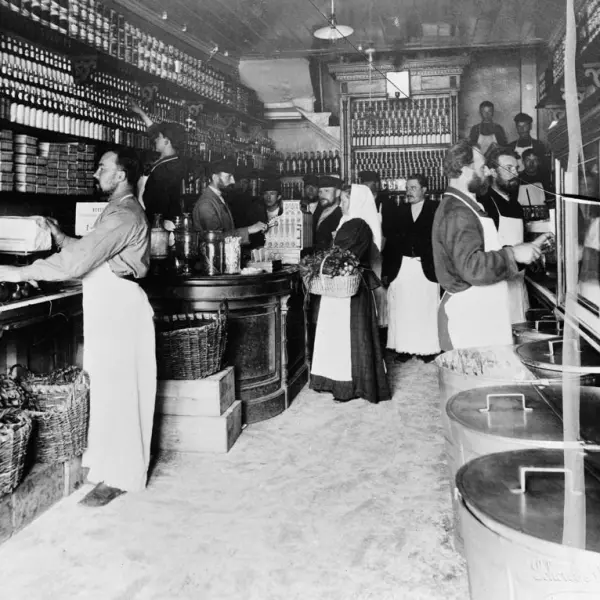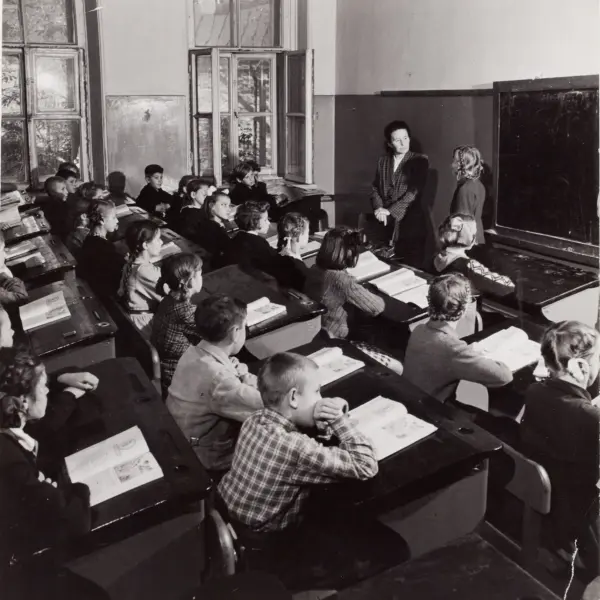Under the bed in the National Room
Under the bed in the National Room
American photojournalist Margaret Bourke-White in her book “Filming the Russian War” recalled how she had a chance to live and work in Moscow amid constant air raids during the first weeks of the German invasion of the USSR:
“After filming the night raid, I returned to the hotel and immediately started showing the film. However, as soon as the precious fruits of my nightly labors sink into the developer, the sirens howled again. I could save the tapes only by continuing to work—a very difficult task, as the duty officers went to all rooms and sent the guests to the shelter. There was a knock on the door and I whizzed under the bed without hesitation. I could hear the attendants looking at the room. After making sure it was empty, they left, and to the roar of new volleys, I showed up, secured it and started washing my films.
Since then, the Caldwell family has had to resort to such purely military tricks again and again (Margaret came to Moscow with her husband, writer Erskine Caldwell, “Old Photos”). I dived into my hiding place under the bed so often that it turned into a pure reflex; the sirens could hardly be heard roaring when I was already lying on the floor. However, my husband considered it beneath his dignity to hide under the bed: he chose the corner behind the sofa and, for the sake of safety, he put on the skin of a polar bear over his head. So he sat in the corner, peeking out from under his skin and preserving his dignity, while the attendants checked to see if anyone stayed in our darkened room.
After a while, we became a custom to stock up on beer and sandwiches in case of an alarm, and later, when other correspondents checked into the hotel, our room turned into a nightclub during air raids. As soon as the attendants finished walking around, dark figures dressed in pajamas began to appear at the door. I am convinced that most of the correspondence about the night raids on Moscow that appeared in the American press came from our magnificent balcony.”
Earlier in Old Photos: Summer 1941: The first raids on Moscow, “How much do you get paid for this?” - “A thousand a month,” Hemingway is in hospital bed.
American photojournalist Margaret Bourke-White in her book “Filming the Russian War” recalled how she had a chance to live and work in Moscow amid constant air raids during the first weeks of the German invasion of the USSR:
“After filming the night raid, I returned to the hotel and immediately started showing the film. However, as soon as the precious fruits of my nightly labors sink into the developer, the sirens howled again. I could save the tapes only by continuing to work—a very difficult task, as the duty officers went to all rooms and sent the guests to the shelter. There was a knock on the door and I whizzed under the bed without hesitation. I could hear the attendants looking at the room. After making sure it was empty, they left, and to the roar of new volleys, I showed up, secured it and started washing my films.
Since then, the Caldwell family has had to resort to such purely military tricks again and again (Margaret came to Moscow with her husband, writer Erskine Caldwell, “Old Photos”). I dived into my hiding place under the bed so often that it turned into a pure reflex; the sirens could hardly be heard roaring when I was already lying on the floor. However, my husband considered it beneath his dignity to hide under the bed: he chose the corner behind the sofa and, for the sake of safety, he put on the skin of a polar bear over his head. So he sat in the corner, peeking out from under his skin and preserving his dignity, while the attendants checked to see if anyone stayed in our darkened room.
After a while, we became a custom to stock up on beer and sandwiches in case of an alarm, and later, when other correspondents checked into the hotel, our room turned into a nightclub during air raids. As soon as the attendants finished walking around, dark figures dressed in pajamas began to appear at the door. I am convinced that most of the correspondence about the night raids on Moscow that appeared in the American press came from our magnificent balcony.”
Earlier in Old Photos: Summer 1941: The first raids on Moscow, “How much do you get paid for this?” - “A thousand a month,” Hemingway is in hospital bed.
Contributed by OldPik on January 6, 2025
Image

You must be logged in to comment on the photos.
Log in
Log in














No comment yet, be the first to comment...